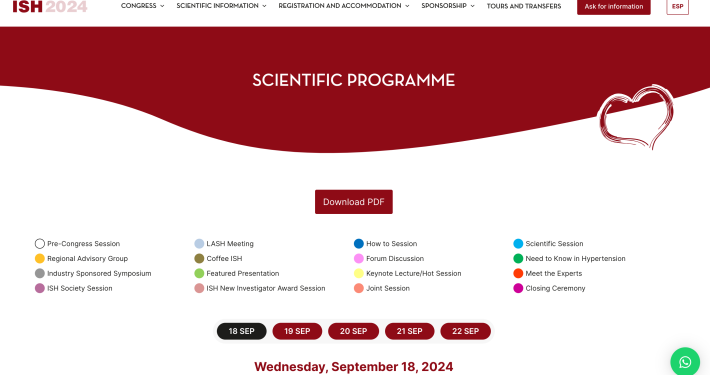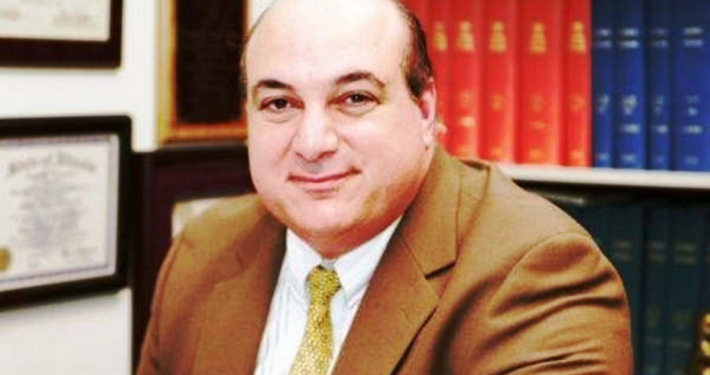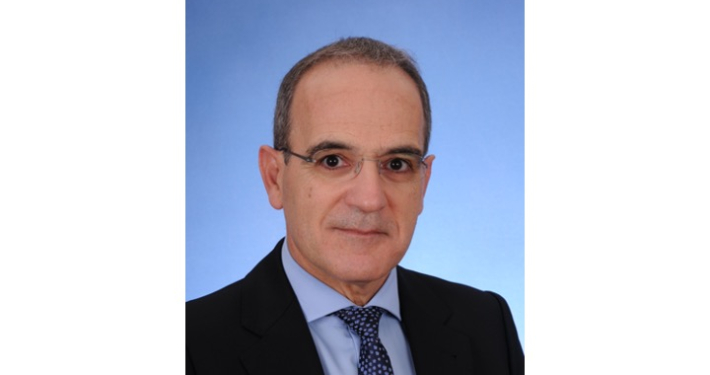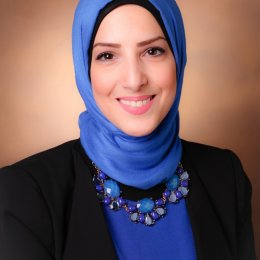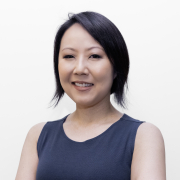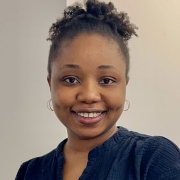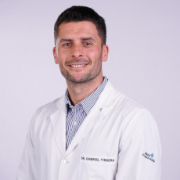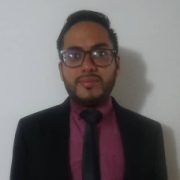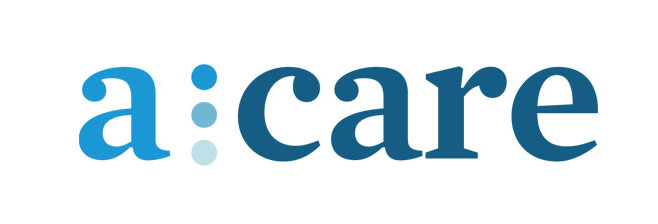1. How did you become interested in research relating to Hypertension and Cardiovascular Disease?
I first became interested in cardiovascular research as an undergraduate student at the Lebanese American University in Beirut, Lebanon. There, I performed several senior research projects and tutored fellow undergraduate students as a member of the cooperative learning center. Driven by my passion for cardiovascular research, I decided to move to the United States to pursue further research training. My ultimate goal is to elucidate mechanisms of hypertension and its attendant end-organ damage. To accomplish this, I completed a Ph.D. in the Molecular and Cellular Biology Program at the University of Iowa, under the supervision of Dr. Curt Sigmund. The University of Iowa and Dr. Sigmund’s laboratory are renowned for research in hypertension and the biology of renin. During my Ph.D. Training, I identified two new molecular mechanisms involved in regulation of renin (REN) gene expression. I was awarded by the American Physiological society for this work.
2. Describe your research & the program/lab (info of your supervisor) that you are in?
In recent years, it has become apparent that inflammation and immunity contribute to hypertension. Dr. Harrison has performed seminal studies defining the role of adaptive immunity in hypertension and Inflammation. I was recruited to pursue a postdoctoral fellowship in the division of clinical pharmacology and under the mentorship of Dr. Harrison at Vanderbilt University and have been selected to be an NIH T32 trainee. As a Post-Doctoral Fellow, I am most interested in the role of memory T cells in sustained or recurrent hypertension. I have developed a research project in which I discovered that memory CD4+ cells and CD8+ T cells accumulate in the kidney during sustained hypertension and are major sources of the inflammatory cytokines IL-17A and IFN-γ. These memory cells seem to accumulate over time with repeated hypertensive challenges. This is important because memory cells are very long lived and sensitize individuals to repeated hypertensive stimuli thus contributing to renal damage. The aim of my studies is to define the immune mechanisms by which memory T cells modulate hypertension and reveal new therapeutic targets for the treatment of this important disease. I was awarded the NIH F32 Individual Postdoctoral Fellowship to complete these studies.
3. What do you consider to be your substantial scientific contribution so far (provide Pubmed PMID if possible)?
I consider my co-authorship on recent publication in Journal of Clinical Investigation (PMID: 25244096, 2014) by the Harrison group to be my most important scientific contribution to the hypertension field. This study reports a striking novel finding that hypertension leads to activation of antigen presenting dendritic cells and that this is superoxide and isoketal mediated. Thus, Isoketal scavengers will most likely provide a new target for treating hypertension.
Kirabo A, Fontana V, de Faria A, Loperena R, Galindo C, Wu J,Bikineyeva A, Dikalov S, Xiao L, Chen W, Saleh M, Trott D, Itani HA, Vinh A, Amarnath V, Amarnath K, Guzik T, Bernstein K, Shen X, Shyr Y, Chen S, Mernaugh R, Laffer C, Elijovich F, Davies S, Moreno L, Madhur M, Roberts J, Harrison DG. Isoketal-Modified Proteins in Dendritic Cells Activate T Cells and Promote Hypertension. JCI 2014 (PMID: 25244096)
4. What is your favourite manuscript from a lab or mentor other than your own (provide Pubmed PMID if possible)?
There are many remarkable manuscripts in cardiovascular research, but one of my favourite manuscripts published in JCI by Dr. Ken Bernstein and his colleagues highlights the key role of renal ACE activity that is required to increase local angiotensin II levels to stimulate sodium transport and induce hypertension. (PMID: 23619363).
5. What facilities are essential for your research?
The experience as a postdoctoral fellow training in Dr. Harrison’s laboratory has immensely advanced my knowledge of immunology and how it contributes to the genesis of hypertension. I have learned state of the art techniques established by the Harrison laboratory to delineate the role of adaptive immunity in hypertension. I have acquired appropriate skills including vascular studies using multi wire myograph, flow cytometry analysis, blood pressure measurement by tail cuff and telemetry, creation of transgenic mouse model, immunization studies such as adoptive transfer, and microtomoraphy or computed tomography (micro-ct) for in vitro scanning.
6. Where do your research strengths lie? Why? What are your research weaknesses? How will you improve?
During my graduate training, I have strongly engaged in developing basic experimental skills both in vitro and in vivo. I have utilized many molecular techniques to elucidate mechanisms in hypertension. Equally, during my postdoctoral training, I have acquired a wide range of techniques using novel in vivo mouse models of cardiovascular disease developed at the Harrison laboratory to understand the role of immunity in hypertension. I strive to integrate both my molecular Biology expertise with the physiological techniques to develop new transgenic mouse models to facilitate my studies.
7. Describe your unforgettable (proudest) moment in science, and the most challenging situation that you have had to overcome (lessons learnt) so far?
My proudest moment in science was at the Experimental Biology Meeting in San Diego 2014, when I was selected as a first place winner for the Excellence in Renal Research Award by the American physiological Society. I recall feeling very proud for discovering that memory CD4+ cells and CD8+ T cells accumulate in the kidney during sustained hypertension.
Throughout my research training, I learned from challenging experiences to persevere and never give up and follow my goals passionately. Developing a successful career in science entails a great deal of work-life balance, hardwork and commitment, outstanding training, funding, and working in an enriched scientific environment among collaborators.
8. At which conference did you first present? How was your experience?
The first conference that I presented at was the AHA High Blood Pressure Research Scientific Meeting as a graduate student in Washington, D.C. I recall being nervous at first, presenting in front of the many pioneers in the field of hypertension, but it was certainly rewarding and the positive feedback helped me advance my research projects. As a trainee, I realized that the most important aspect of a scientific presentation is to highlight the significance of your study and display your results in a simple manner for your audience to comprehend the data easier.
9. What upcoming conferences will you be attending, and what is the furthest distance that you have traveled for a conference?
I will be attending the Experimental Biology Meeting in March and the Council of Hypertension Research in September 2015.
10. How did you learn about ISH/NIN and its activities?
I learned about the International Society of Hypertension from my Colleagues and it was a great privilege to present and learn more about novel discoveries in hypertension. I value the excellent scientific discussions and feedback received from ISH New Investigator Committee and peers. As a Trainee, attending ISH is a great opportunity to meet pioneers in the field of hypertension, to develop international collaborations among peers and networking skills, and to learn more about novel discoveries in hypertension.
11. What area(s) do you wish to specialize in the future?
I would like to advance my knowledge in the inflammation-mediated cardiovascular disease, and develop translational research projects to understand the role of Immunological memory in humans.
12. Who is your role model in Science? Why?
I have been fortunate throughout my research training to have great role models during my graduate and post-graduate studies. Both Dr. David Harrison and Dr. Curt Sigmund received the highest honours given for hypertensive research, including the Novartis Excellence Award for High Blood Pressure Research. My postdoctoral mentor, Dr. David Harrison is a unique role model with remarkably successful career paths devoted to training young scientists. He has provided me with great support and mentorship, state of the art research techniques, grant and manuscript writing skills, presentation, and leadership skills, amongst many other qualities that I cherish. Through training, Dr. Harrison provides me with guidance and advice in developing independence and collaborations in the field of hypertension. As a trainee, I have been given the opportunity to seek independent funding opportunities, author peer-review manuscripts, and train graduate students to acquire mentoring skills.
13. Are you involved in other scientific or career associations? If yes, how is it helping in your career advancements?
While at Vanderbilt, I have been selected at Vanderbilt Summer School Academy (VSSA) School of Medicine to mentor students interested in a career in medicine. I have mentored student’s progress during an intensive six-weeks of research and lectured on how to prepare an effective scientific presentation and conducted survival skills enrichment sessions. I also judged the poster sessions at the VSSA. I served as a member of the advising committee for planning the Academic Career Day organized by the Biomedical Research Education Training office.
Since national recognition is important in a scientific endeavor, I therefore attained membership in several professional associations including the International Society of Hypertension (ISH), American Physiological Society (APS), American Heart Association (AHA), North American Vascular Biology organization (NAVBO), and the American Association of Immunologists (AAI). I also serve on AHA Trainee Advocacy Committee and the APS Cardiovascular Section Trainee Committee.
It is a great honor to receive the New Investigator Presentation Award at the International Society of Hypertension (ISH) and present my project at the ISH symposium in San Francisco. I value the excellent scientific discussions and feedback received from ISH New Investigator Committee and peers. As a Trainee, attending ISH is a great opportunity to meet pioneers in the field of hypertension, to develop collaborations among peers and networking skills, and to learn more about novel discoveries in hypertension. Dr. Gabriel Navar’s keynote lecture has provided valuable insights on how to develop a scientific career, grant writing skills, and how to transition from a mentee to a mentor, which is a critical process to gain independence as research scientist. I encourage Colleagues and Trainees to join ISH and attend scientific symposium in the future to benefit from this great learning experience.
14. What are your scientific goals? Advise for talented emerging scientists?
My ultimate goal is to mature as an independent and successful academic research investigator and to establish my own laboratory in the field of inflammation-mediated cardiovascular disease. In order to achieve these goals, I aim to secure funding and apply for career development awards. Given the excellent scientific environment at Vanderbilt coupled with the supportive mentorship will enable me to achieve my career goals and objectives.
I advise emerging trainees to seek funding and develop their grant writing skills early in their career, have novelty in their projects, and attain best research ethics. I encourage them to present their projects at national meetings focused on hypertension research such as ISH and get involved in attending career development activities. It is very important to live your own dream and seek passion in your work to excel. There will be many letdowns along the way but with persistence and patience you will reach your goals, remember, “If the plan doesn’t work, change the plan but never the goal”.

